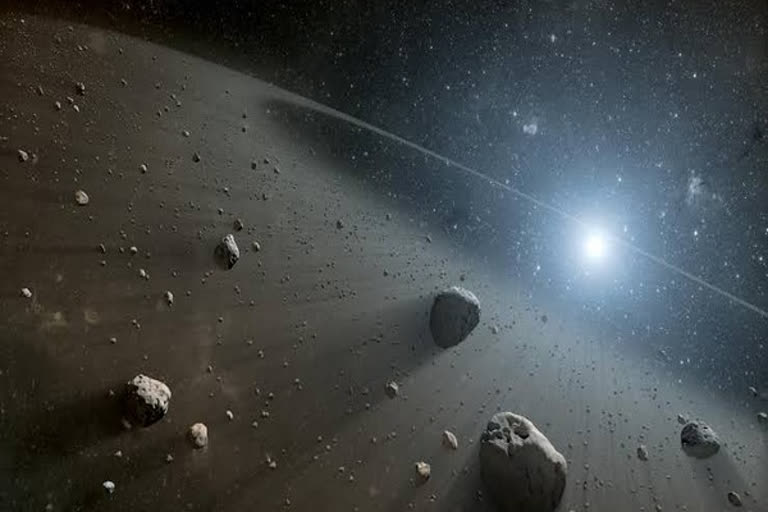Tokyo: Japanese space officials said they are excited about the return of a capsule that safely landed in Australian Outback on Sunday while carrying soil samples from a distant asteroid so they can start analyzing what they say are treasures inside.
The capsule's delivery by the Hayabusa2 spacecraft completes its six-year sample-return mission and opens the door for research into finding clues to the origin of the solar system and life on Earth.
“We were able to land the treasure box" onto the sparsely populated Australian desert of Woomera as planned, said Yuichi Tsuda, Hayabusa2 project manager at the Japan Aerospace Exploration Agency, or JAXA, adding that the capsule was in perfect shape.
“I really look forward to opening it and looking inside,” he said.
The capsule will be packed in a container as soon as its preliminary treatment at an Australian lab is finished and brought back to Japan this week, Satoru Nakazawa, a project sub-manager, said during an online news conference from Woomera.
Hayabusa2 left the asteroid Ryugu, about 300 million kilometers (180 million miles) from Earth, a year ago. After it released the capsule on Saturday, it set off on a new expedition to another distant asteroid.
Scientists say they believe the samples, especially ones taken from under the asteroid's surface, contain valuable data unaffected by space radiation and other environmental factors.
They are particularly interested in organic materials in the samples to find out how the materials are distributed in the solar system and related to life on Earth.
“We have high expectations that the sample analysis will lead to further research into the origin of the solar system and how water was transported to Earth,” said JAXA president Hiroshi Yamakawa.
The return of the capsule with the world's first asteroid subsurface samples comes weeks after NASA's OSIRIS-REx spacecraft made a successful touch-and-go grab of surface samples from the asteroid Bennu.
China, meanwhile, announced recently that its lunar lander collected underground samples and sealed them within the spacecraft for return to Earth, as space developing nations compete in their missions.
JAXA officials said the Ryugu samples will be handled in clean chambers to avoid any impact on the samples.
